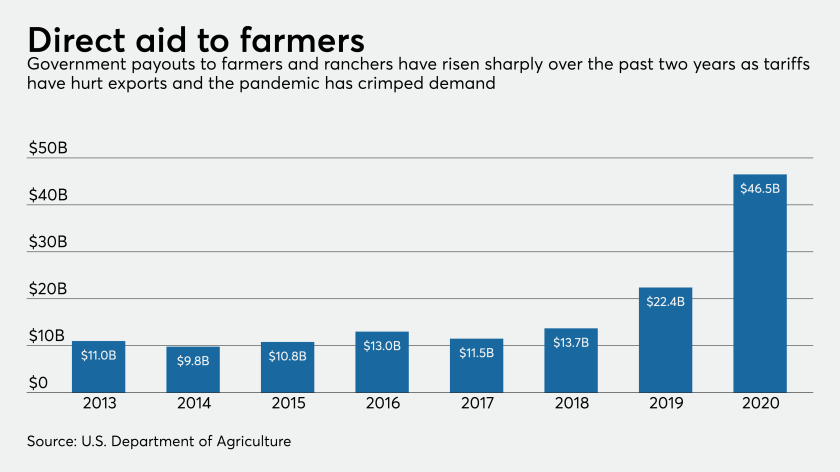WASHINGTON — Five federal banking agencies and a trade group for state banking regulators issued guidance Sunday encouraging banks to make loan modifications for borrowers affected by the coronavirus.
The joint statement by the Federal Reserve, Federal Deposit Insurance Corp., Office of the Comptroller of the Currency, Consumer Financial Protection Bureau, National Credit Union Administration and Conference of State Bank Supervisors said banks will not be required to categorize those modifications as troubled debt restructurings.
The agencies said short-term loan modifications can include payment deferrals, fee waivers, extensions of repayment terms and other insignificant payment delays.
“The agencies view prudent loan modification programs offered to financial institution customers affected by COVID-19 as positive and proactive actions that can manage or mitigate adverse impacts on borrowers, and lead to improved loan performance and reduced credit risk,” the regulators said in the statement.

Bank examiners will “exercise judgement” in approving loan modifications, including TDRs, they said.
“Regardless of whether modifications are considered TDRs or are adversely classified, agency examiners will not criticize prudent efforts to modify terms on existing loans for affected customers,” the agencies said.
Loans that have been restructured will still be eligible as collateral at the Fed’s discount window, the regulators said.
The Internal Revenue Service is extending until June 30, 2021 the period in which it will accept digitally signed and emailed documents due to the COVID-19 pandemic.
EAPs, yoga and meditation classes and access to free therapy are all ways to help your employees combat stress and anxiety from the on-going pandemic.
The Biden administration could curtail federal support for farmers, even with bankruptcies and requests for loan workouts on the rise. Banks are hoping that increases in crop prices and exports to China could help avert a credit crisis.
The Fed has encouraged banks to use the discount window as the economic turmoil resulting from the coronavirus continues to threaten the U.S. economy. All of the banking regulators have encouraged financial institutions to dip into their capital and liquidity buffers in order to continue lending in any period of economic stress.
Also on Sunday, Treasury Secretary Steven Mnuchin previewed the details of a rescue package, raising questions about the gravity of the effect of the virus on the financial system. The package reportedly includes as much as $4 trillion of liquidity support from the Federal Reserve.
Politico also reported the Senate’s economic stimulus plan could authorize the Federal Deposit Insurance Corp. to guarantee business transaction accounts, similar to a program the FDIC launched in 2008.





